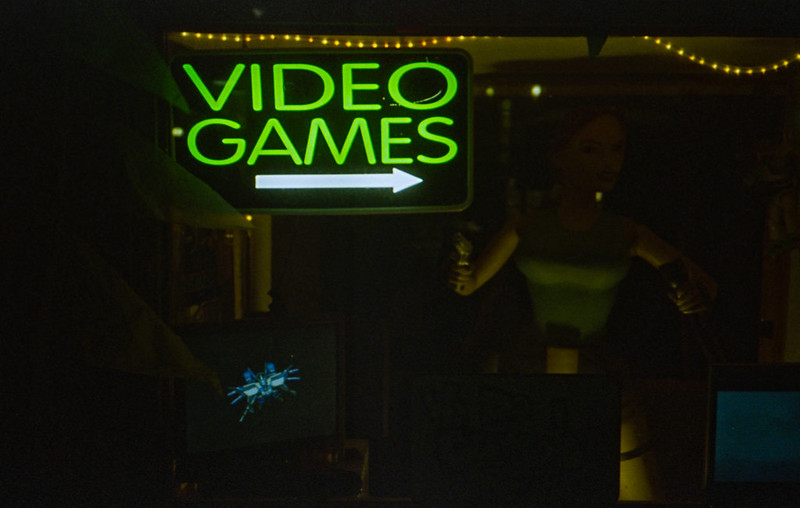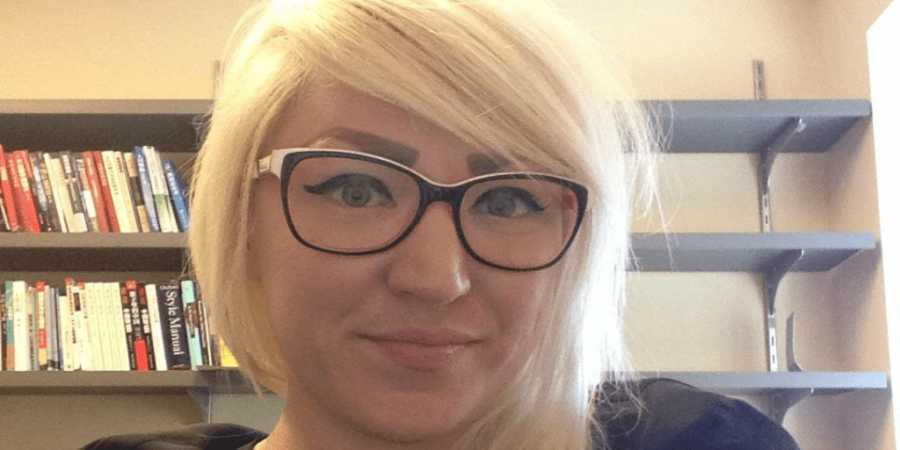Although the film American East tries too hard to impress upon viewers the plight of Muslims and Middle Eastern immigrants in the U.S., the aim of the film and its director, Hesham Izzawy, remains a noble one, highlighting issues and problems that Middle Eastern Americans and Muslim Americans continue to face
AmericanEast was released on DVD last month. Tariq Nelson was one of the first Muslim bloggers to review the movie:
AmericanEast is an attempt at mainstreaming American Muslims and attempts to portray the struggles Muslims face in the United States. In my opinion, they overdid it and never established a coherent plot. And on top of that, I found that the characters had no depth and some were cartoonish caricatures.
The movie centers on Mustafa, an Egyptian immigrant who owns a café in a heavily Middle Eastern part of Los Angeles. His life, and the lives of several close to him, is one problem or tragedy after another: it seems as if nothing good will ever happen to anyone in the movie.
Mustafa has a sister, Salwah. Tariq outlines her character:
Salwah Marzouke, Mustafa’s sister, was a nurse that styled hair in the back of her brother’s restaurant and was arranged to marry her cousin Sabir. However she did not like him and they did not get married. But the cousin was never informed (at least not on camera) and the story was dropped. Salwah was also interested in a doctor at her hospital who was not Muslim.
The movie stresses over and over that it is Mustafa’s duty to marry Salwah off (or so he believes). Sabir comes from Egypt to marry Salwah and take her back home with him, though she is less than excited about this arrangement. Even though she often fights with her brother, she gives off an air of resigned duty and submissiveness. These are traits that plague many female Muslim characters in the form of wide-eyed, helpless stares contrasted with humbly averted eyes and lowered chin, and Salwah’s character is no different.
She is attracted to a white, non-Muslim doctor who works with her at the hospital, and after the arranged marriage “thing” magically goes away, she agrees to let him cook Japanese food for her at his house. They skip dinner and get straight to a makeout session, but Salwah asks him to stop suddenly. She nervously apologizes, stammering that she thought she could “do this”, and gives him the whole “it’s not you, it’s me, you wouldn’t understand” before rushing out.
Because Salwah’s character is not developed enough to reveal her thought process (did she realize that she is just not that into him? Did she decide that he was going too fast for her, and maybe she would like to begin again under different circumstances? Did she think that maybe she should give Sabir a chance? Or maybe she realized she was on her period?), the viewer must fall back on Salwah’s stereotypical visual cues. The viewer then assumes that she is backing out of sex or maybe a relationship with this doctor out of an obligation to culture or religion or tradition, despite the fact that one of her friends stated that Salwah is “no Virgin Mary” earlier in the movie.
Salwah’s inclusion in the movie symbolizes The Great (and imaginary) Conflict between America and the “Muslim World” or a clash between tradition and modernity. The movie sets up these false dichotomies through Salwah, having her arranged marriage illustrate tradition (which is often synonymous with religion) and her career and brief date illustrate “modernity.” The burden of “marrying her off” is a traditional one her brother feels he must carry, although she is not interested in being such a burden. In fact, because Salwah has two jobs and supports Mustafa and his rapidly failing café, it is he who is the burden.
Mustafa also has a daughter. Tariq explains her role in the movie:
Leila Marzouke, was Mustafa’s dope smoking/dawah giving daughter. She had a scene that was like an infomercial in which she is talking about Islam and Middle Eastern history with her friend while smoking marijuana. That seemed to be her only purpose in the movie. Came off as very forced and as if the movie was preaching to the audience.
Leila’s main purpose is delivering the cartoonish “history/philosophy” lesson about Islam and the Israeli-Palestinian conflict. Unfortunately, there are a number of problems with this feature. First, having all the Arabs in the cartoon portrayed as brown men with turbans and huge noses is incredibly off-putting.
Second, condensing an entire region’s millennia of history into a cartoon is mistake enough, but so is leaving out everyone but American, Israeli and Arab players. As if Kurdish Saladin was the only person outside of the Israeli-Palestinian-American trifecta to make a significant difference in the area’s politics!
The cartoon also shows Christian and Muslim men alike at a huge post-Crusades party, complete with camels and I Dream of Jeannie-inspired women ornaments. Camels and belly dancers. Really? This, coupled with the racist caricatures of Arabs in the beginning of the cartoon, severely undermines the movie’s attempt to dispel stereotypes about Arabs and Islam.
Leila’s other feature is to get ordered around by her father (“Leila, see what the customer wants”) or serve as a catalyst for escalating troubles for her father (like when she irritates a consistently rude café regular, who then yells at her father).
Although the film tries too hard to impress upon viewers the plight of Muslims and Middle Eastern immigrants in the U.S., the aim of Hesham Izzawy, the director, was a noble one. Though Ray Hanania is rosier on his impression of the film and its impact (it was not picked up in theaters), the movie, however exaggerated and exclusive of women, does highlight issues and problems that Middle Eastern Americans and Muslim Americans often face in a country whose mainstream media and entertainment divisions produce “War on Terror” products like 24 and Obsession, which vilify Muslims and Middle Eastern people through flat characterizations of “angry bearded terrorist #1” or “captive veiled woman #5”.
The movie does so while addressing uniquely American issues. Fikri, a café regular, states that all this hatred toward Muslims and Middle Eastern people is because of our newness: “This happened to the Italians, the Irish, the Jewish when they were new here. Now we’re the new ones.” A definitely interesting and relevant historic observation that hints at a brighter future.
Another issue is integration: during a fight between Mustafa and Salwah, Sabir makes the observation that “Muslims must give up something to live here [in the U.S.]. But is it worth it?” It is unclear exactly what Sabir was referring to. Perhaps he is referring to ethnic culture being overtaken by an amalgamated American Muslim identity, or perhaps he is referring to the replacement of traditional practices with “modern/American” ones. While these things can definitely characterize many Muslim and Middle Eastern American experiences, the heavy-handed rhetorical question Sabir ignores the reality of identity, assuming that it is static and defined only by things like ethnicity or religion. It also puts forth the idea that immigrant Muslims in America have lost something (while Muslims born in America perhaps don’t have it in the first place), presumably something in their Muslim identities or way of life.
This movie, written and directed by Arabs and Muslims, and featuring a large Middle Eastern American cast, is part of a larger media movement by Middle Eastern Americans and Muslims designed to mainstream themselves into America’s culture. Television shows, movies, books, and comedy tours featuring Middle Eastern Americans and Muslim Americans are actively working to get their voices heard and represented. Though the waves of immigrants from Ireland and Italy had to wait for generations to be accepted into the mainstream, Middle Eastern and Muslim Americans like Izzawy are refusing to play the same waiting game.
Fatemeh Fakhraie is an Iranian-American Muslim woman who writes articles about race, religion, and feminism in different outlets, and speaks publicly about issues that Muslim women face from an Islamic feminist viewpoint. She founded and currently serves as editor of Muslimah Media Watch and is an associate editor for altmuslimah.

















